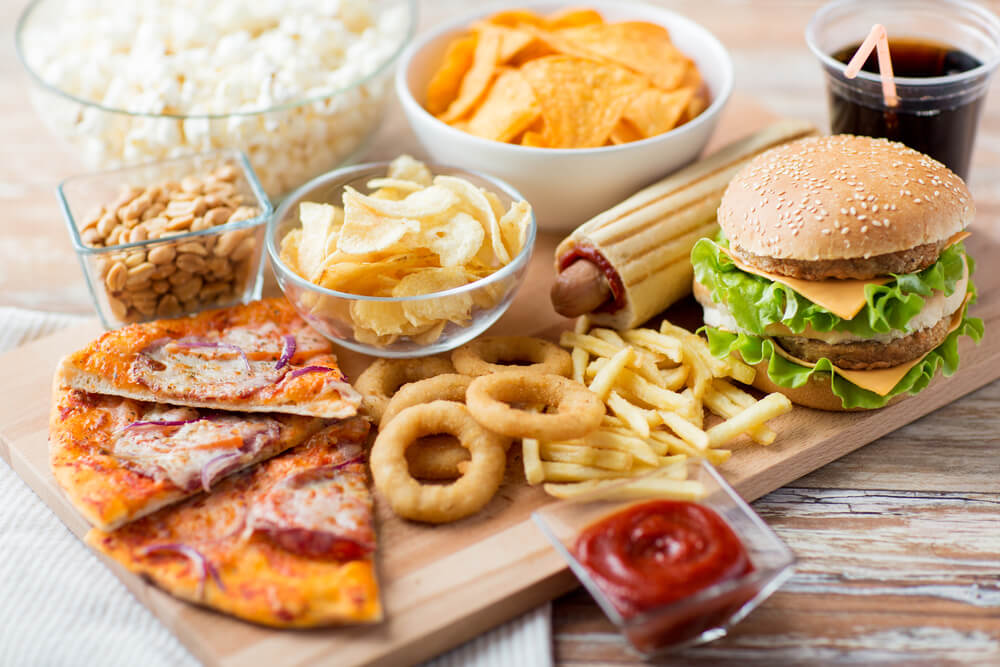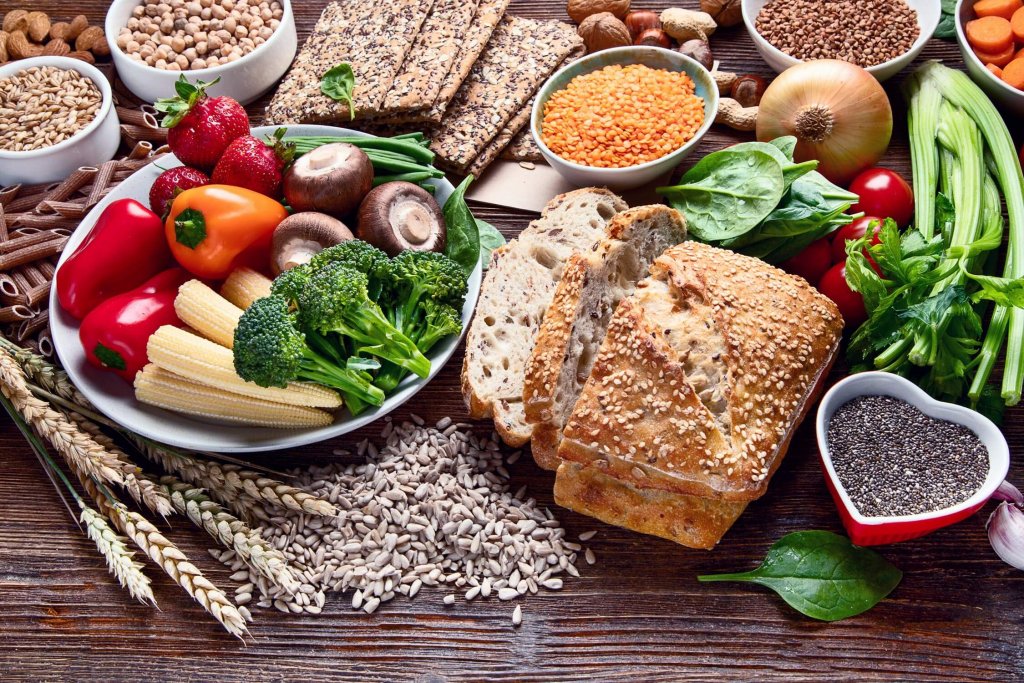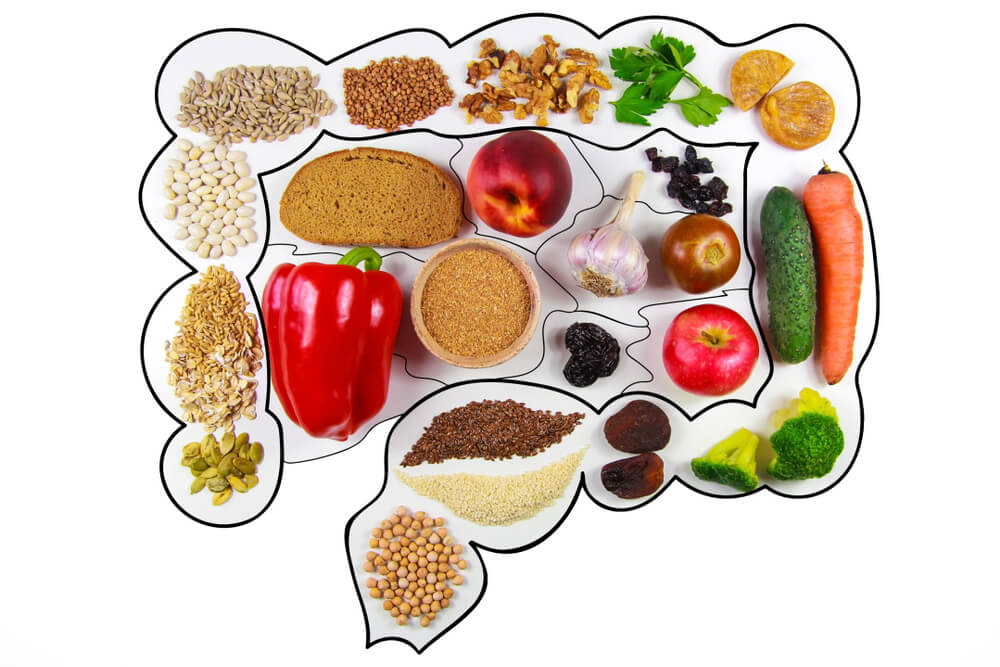First, we would like to clarify one important thing: if you have problems with your digestion, you are definitely not the only one! The thing is, many people secretly suffer from this or that digestive discomfort and it prevents them from living the life to the fullest. Whether it is nausea, gas, or constipation – almost all of us have experienced such problems, and the cause is often clear. Modern, fast-paced lifestyle, meals that barely resemble real food, lack of time for resting and relaxation, etc. Sounds familiar? Oh, yes! That’s why it’s time for us to help you waken and regulate your digestive system. Read our extensive list of tips and permanently improve your digestion in a completely natural and simple way.
First, We Need to Go Back to School (Don’t Worry, It Will Be Quick and Painless)
If we want to help our body, we first need to understand it a little better. Knowing a thing or two about the digestive system and the factors determining the digestion can put things in a completely different perspective.
The first thing we need to know is that the food we eat does not come out next time we rush to the toilet. Our breakfast, lunch, dinner and snacks need much longer to end their journey through our digestive system. Generally, at least 24 hours are required for a meal to travel from mouth to anus, but this so-called transit time may vary depending on many factors. Among these, the most important ones are without doubt a person’s diet, their level of activity and the amount of psychological stress they are exposed to. Psychological characteristics and general health also play an important role in this equation.
Waste that does not leave your colon for more than a few days poses a significant health risk. It is more likely to be reabsorbed into the bloodstream, which can have an irritating effect on the intestinal walls. This increases the risk of several diseases, among which cancer is the most severe outcome. Therefore, if your body needs more time to process what you’ve eaten, these are the areas you need to focus on to mercilessly eliminate poor digestion and win your health back. And this is the no-nonsense way to do it – supported by science and medicine. It’s called eliminating slow digestion causes!
With Healthy Lifestyle Choices to Smooth Digestion
While you might already know some tricks for boosting a slow digestive system, we want you to really rock it this time and get rid of this issue for good. But if you want to enjoy life without constipation, bloating and discomfort, you need to think big for a moment. We don’t want to sound overly dramatic, but only by adopting a healthier lifestyle overall, you will be able to truly leave sluggish digestion behind and thus improve your general health. Knowing what causes slow digestion is essential for also knowing which habits you need to eliminate for the ultimate victory. But don’t you worry. Turning unhealthy routines into habits that will actually benefit your gut is not as complicated as it may seem. Especially as we will break it down into small and easy steps for you. Ready to meet the best slow digestion remedies? Let’s go!
Avoid Processed and Fatty Foods and Alcohol
OK, we first need to talk about foods and drinks that are among the most common causes of slow digestion. It goes without saying that the typical western diet might be one of your gut’s worst enemies. Yes, we are talking about ready-made meals, fast food and various popular snacks. Being high in sugar, salt, artificial additives and saturated fats, these foods are usually harder to digest as they are more likely to slow down your metabolism. They are basically robbed of nutrients, especially fiber that is needed for the regulation of the digestive processes. What is more, the high amounts of salt that many quick meals contain can dehydrate the digestive tract, which is a surefire way to the land of constipation.
While our bodies react differently to the same nutrients – which means that there is no universal answer to the question of what causes slow digestion -, scientists and medical professionals alike will generally tell you that speeding up a slow digestive system means avoiding too much of the following:
- processed foods (pretty much everything that comes in a box, such as microwave meals, snacks like potato chips and popcorn, cereal with tons of sugar, flavored nuts, margarine, ketchup etc.)
- meat for breakfast, lunch and dinner
- fried and fatty foods
- caffeine
- alcohol
- spicy foods
- dairy products such as milk, ice cream, cheese …

Get Plenty of Fiber Instead
Ok, now that we’ve tackled slowly digesting foods, it’s also time to see which nutrients can speed things up in the toilet. And there is one term that stands out like no other: fiber. Besides a number of health benefits such as lowering cholesterol levels and reducing the risk of heart disease, it is also crucial for faster digestion. So, what does this mean for our diet? Swearing by plant foods, especially their peels and skins. Eating more fruits and vegetables, lentils, nuts or whole grains will redefine your relationship with the toilet while preventing symptoms such as cramping or gas.
There are two types of fiber. While soluble fiber makes for a softer stool, thus helping it to travel through the digestive system with ease, insoluble fiber is known to add bulk to your waste, thus ensuring regular and normal bowel movements. Experts agree that in general, plant foods contain both kinds of fiber, but to be really precise, we dug a bit deeper and created a list of good sources for each type.
Foods rich in soluble fiber are:
- oats
- beans
- peas
- avocados
- apples
- carrots
- barley
- citrus fruits
- strawberries
And the top sources of insoluble fiber are:
- wheat bran
- whole-wheat flour
- vegetables such as cauliflower, potatoes etc.

According to several dietary guidelines, a recommended amount of fiber for an average adult is approximately 30 grams per day. Nutritionists also recommend combining a fibrous diet with a generous dose of liquids. This ensures that the fiber can travel through the digestive system without issues.
Add Gut-Friendly Nutrients to Your Everyday Diet
Your gut is home to various types of bacteria that naturally reside there. While some of them actually support the digestive process, others might work against it. Among those that work in favor of a healthy gut ecosystem are probiotics. These microorganisms are known to break down indigestible fiber, thus preventing bloating, gas and stomach pain. Besides being on the front line in the fight against constipation, they also relieve symptoms of digestive issues such as irritable bowel syndrome or inflammatory bowel disease, take part in the absorption of nutrients and keep harmful microorganisms in check.
Probiotics can be found in fermented foods. This expression is used to describe foods that are either produced or preserved with the help of microorganisms. Want to know which these are? Here is the list:
- Sauerkraut
- Yoghurts with active cultures
- Some sorts of aged cheese
- Pickled vegetables
- Kimchi
- Kombucha
- Sauerkraut
- Apple cider
- Kvass
So, are you into pickles? Do you have a secret passion for sauerkraut? Maybe you like to start your day by putting some oats in yoghurt. If so, keep up the good work. And if the foods on the list above sound like Chinese to you, it’s high time to embrace the fermentation trend and give your gut the boost it needs.

Hydration Matters Too!
It’s time for some (not so) fun facts! Did you know that low fluid intake is one of the most common culprits for constipation? Forgetting to drink is responsible for a variety of health issues and a slow bowel only adds to this harmful mix. But luckily, the solution is pretty straightforward. By taking care that your body gets enough water, you will flush unwanted waste out of your intestine, soften your stool and thus naturally improve your digestion.
Obviously, the amount of fluids one needs per day depends on many factors.
While experts recommend at least around 8 glasses of non-caffeinated fluids daily for digestive health, people that are more active will have to drink even more. Along with water or herbal tea, you can also boost your fluid intake with the help of fruits or vegetables with a high percentage of water.
These include watermelons, tomatoes, zucchini, strawberries, grapefruits etc. Are you up for one more trick? Try combining one of your meals with some good old soup on the side.
Hopefully, we don’t need to remind you that it’s best to stick to water or unsweetened herbal tea and avoid sugary drinks. However, if your digestion needs a little more help, you can even mix some water with half a squeezed lemon and drink it when starting your day. In this way, you will contribute to the activation of the digestive juices in your intestine, making your body ready to process food and break down unwanted waste. And if you can bare the taste, a tablespoon or two of cider vinegar is also a tried and tested shortcut to improved digestion.
But what if your gut really needs a boost?
The answer is called Donat, natural mineral water with scientifically proven health benefits. It has been recognised as one of the best slow digestion remedies and weapons against constipation for more than 400 years, and not without reason. Its secret lies in the unique combination of magnesium and sulphate ions. Working through a process called osmosis, sulphate ions absorb water from the cells in the intestinal wall, thus significantly increasing the volume of the intestinal content. At the same time, the magnesium relaxes the muscles and thus helps to stimulate regular bowel contractions. Wanna know more? Read all about the health benefits of drinking Donat or learn more about its properties as well as how to drink it properly.

It’s Not Just What You Eat, but Also How
Are you among those that are used to eating faster than some people talk? You might want to pay attention then as this nasty habit belong to common slow digestion causes for many people. Don’t believe us? Read on.
Experts say that picking the right foods and drinking enough is only one part of the equation as paying attention to how we eat also plays an important role in healthy digestion. It all starts in our mouth when we chew food. And the better we chew it, the easier we make it for our digestive tract to finish the job while also absorbing more healthy nutrients.
When we thoroughly chew every mouthful of food, our mouth produces more saliva, thus kickstarting the digestion of carbohydrates as well as fat digestion already in our mouth. Saliva is then mixed with the solid food, helping the stomach to convert it into the liquid mix that can travel smoothly through the intestine. Experts even argue that chewing food plays a role in reducing the level of stress, further helping to ease the digestion.
Along with carefully breaking chunks of food into even smaller pieces instead of devouring every meal like we haven’t eaten in days, we also need to listen to our bodies. Are we full already? Do we really need another portion? The so-called fullness cues are all too easy to overlook, which leads to bloating, indigestion, cramping or gas. Therefore, the key is in eating slowly and mindfully. This includes enjoying our meals in peace, without external distractions such as watching TV, surfing the web or playing with our smartphones. According to a common theory, our brain needs around 20 minutes to realize that we are full. Giving ourselves enough time and paying attention to the signals our body is sending can prevent a whole host of digestive issues.
What is more, eating too quickly can also result in swallowing large amounts of air along with our food. Thus, we can quickly increase the amount of gas in the system, contributing to the increased feeling of discomfort and bloating.
Stress Does Not Belong on the Menu
Do slow digestion symptoms coincide with hard days at work? You might want to relax first. High levels of stress can disrupt the digestive process in your body in numerous ways, resulting in a number of health issues. When you are faced with a stressful situation, your body switches to survival mode, thus diverting energy away from properly regulating the digestive system. While in many cases, this can lead to problems such as ulcers or diarrhea, it isn’t uncommon for stress to also cause constipation.
If you think that the reason you have to fight slow digestion might have to do with the levels of everyday stress, we therefore recommend that you try to relax before every meal. Breathing exercises, sports activities and meditation could be helpful while eating slowly and in peace instead of rushing it is also crucial.

Get Moving!
Yup, it is time to look for your gym bag and put your sneakers on. If you want to eliminate slow digestion causes, exercising is your best bet. As the food moves through the body with the help of regular muscle contractions (peristalsis), staying active ensures that this process does not slow down. However, if your habits resemble those of a couch potato, the transit time can increase significantly, resulting in cramps, general discomfort and severe constipation.
To counteract this problem, you therefore need to exercise, thus increasing the metabolism and stimulating the peristalsis again. Even some gentle stretching or a short stroll around the block can get you a long way as the upright position means allowing the gravity to push food through the intestine more easily.
But if you exercise regularly, for example at least half an hour a day, you will be able to improve your digestion even more. According to several studies, even moderate forms of exercise such as light jogging or cycling can decrease the transit time by approximately 30%. Sports activities also reduce the level of stress, thus going hand in hand with relaxation, while also decreasing the risk of inflammatory bowel disease and other issues.

You Can Do It!
There you have it, your very own guide to waving constipation or slow digestion goodbye. As you can see, achieving this goal is no rocket science. The secret is in a healthy diet, accompanied with mindful eating and an active lifestyle with regular exercise. And, of course, not forgetting to drink enough. With a little bit of commitment, almost everyone can do at least a little bit to make their toilet visits more frequent and improve their overall health in a completely natural way. We know you can do it too!
Frequently Asked Questions
1. What does bad or slow digestion mean?
The body needs certain time for digestion and excretion of waste product, usually at least 24 hours. This period is called transit time and it depends on many factors, such as the level of psychological stress we have been exposed to or the amount of physical activity. The longer the transit time, the worse the digestion is and the worse we will feel. If we don’t have bowel movement for a few days in a row, we can already talk about slow digestion.
2. How can we help ourselves if we suffer from indigestion?
We can do a lot for our digestion with small and very simple changes in lifestyle. It is extremely important to introduce a fiber-rich diet and at the same time reduce the intake of fried, fatty and processed food, avoid alcohol and smoking. It is also crucial to get more physically active, avoid stress and drink enough fluids – water or unsweetened tea.
3. Which food causes indigestion?
The main culprits for slow and irregular digestion are processed food with a high salt and sugar content, fatty/fired food, dairy products, too much meat, spicy food, and caffeine.
4. Which food helps in regulation of digestion?
First, those are foodstuffs rich in fiber, whose source are mostly fruit and vegetables, such as beans, avocado, apples, barley, citruses, strawberries, oat flakes, cauliflower, potatoes. Probiotics are also extremely helpful, and they can be found in curdled milk, kefir, fresh cheese and yogurts, and pickled vegetables. Considering drinks, it is important to drink water and unsweetened tea, and natural mineral water is also an excellent choice.
5. How does Donat help accelerate digestion?
Donat natural mineral water works on the principle of osmosis. High concentration of sulphates from the cells in the intestine wall absorb the water, which increases the volume of intestine contents. At the same time magnesium relaxed the muscles and additionally accelerates the elimination of waste product from the body.
Odaberi poglavlje:







